Ignore the calls of treason – Trump handled the press conference with Putin well. Here’s why
Those on Trump’s own side who had opposed the meeting from the start were dead set against any improvement in US-Russia relations and went to great lengths to pre-empt the very possibility

If you thought president Donald Trump’s non-state visit to the UK was a slow motion car crash, albeit one that played out amid flawless pageantry, consider his tryst in Helsinki with Vladimir Putin. The final press conference had scarcely begun, when his critics launched their tirade on social media, accusing the US president of weakness, even surrender, in the face of an all-conquering Russian adversary. Then it got worse.
Answering a question about whether he believed the assertions of US intelligence agencies or the denials of Putin about alleged Russian interference in the US election, Trump said he didn’t see “any reason why it would be” Russia. That is more or less the answer he has always given. Whether he was wise to give it while sharing a stage with the Russian president, of course, is another matter.
Even Russian reporters are said to have been aghast that a US president was prepared, in effect, to question the reliability of his own intelligence services in that way. Was there no nuanced reply he could have given that would have left at very least a degree of ambiguity such that his integrity (as he would see it) and the honour of “the agencies” could both remain intact? A skilled spin doctor would surely have devised one.
But, of course, Trump does not do nuance and there is no love lost between him and a Washington establishment that he believes is out to get him. Nonetheless, by the time Air Force One touched down in Washington and the charges of “surrender” had become “treachery”, “treason” and undermining the national interest, the president was persuaded – strong-armed? – to revisit his remarks and give something akin to the answer he “should” have given in the first place.
How many hours his staff had spent scouring the transcript to find the minimal change that could be made to save Trump from himself will probably never be known. But the result was a (fairly) contrite president, saying this: “In a key sentence in my remarks, I said the word ‘would’ instead of ‘wouldn’t’. The sentence should have been: ‘I don’t see any reason why … it wouldn’t be Russia’.” He added a muffled (and qualified) acceptance of Russian “meddling” in the 2016 election and expressed “full faith and support” in the US intelligence agencies.
It may just be enough for new critics on his own side (who included some of his long time friends at Fox News) to call the dogs off. It may also help to reduce the potential harm to the Republicans’ cause in this year’s midterm congressional elections, which was probably the main aim. It will do nothing, however, to change the minds of his domestic enemies.
Rabid opposition at home or rather in Washington, was why the Trump-Putin meeting in Helsinki was always going to be a bigger risk for the US president than for his Russian counterpart and so it proved. For all the warnings about Putin’s 20 years as a KGB agent, such as his supposed mastery at reading “the enemy”, his dominance of post-Soviet politics and his near two decades of experience on the world stage, these were not the reasons why Trump emerged from Helsinki the apparent loser.
Putin did not, in the event, run rings about Trump in Finland, nor did he outsmart Trump at the public podium, nor did he inveigle him into making concessions, either on sanctions or on Ukraine, or – so far as we know – anything else. No, it was not Putin who bested the US president at Helsinki, but those on Trump’s own side who had opposed the meeting from the start, were dead set against any improvement in US-Russia relations and went to great lengths to pre-empt the very possibility.
How far did they succeed in that mission? On the face of it, given Trump’s reversal on Russia’s alleged electoral interference within hours of his return, almost totally. They have even used Trump’s original ill-advised answer at the Helsinki press conference to set the old hare running about Trump being vulnerable to blackmail from Russia on account of kompromat (as per the highly questionable dossier compiled by the ex-MI6 agent, Chris Steele). But it is worth looking a little closer.
One of the complaints of Trump’s critics was that he appeared submissive, appeared to defer to the Russian leader and gave him too much “air-time”. That is one interpretation of how the joint press conference, if not the actual talks themselves, panned out. Here is another.
In his first dealings with foreign leaders – especially leaders of countries that are weaker and poorer than the United States – Trump understands something many American leaders have not: that no relationship will be established, talks will hardly get off the ground, unless those on the other side feel they are being treated with respect.
Many Americans will find this unnecessary; they might argue (with former secretary of state Madeleine Albright) that the US is, by its very nature and global pre-eminence, the “indispensable power”. But Trump, the transactional realist, understands something different. This is why the podium at Helsinki was set up as it was, why he ushered Putin in first, why Putin made the first statement and why Trump appeared to defer to Putin as he did. You can only do that from a position of strength; this is a plus, not a minus.
Second, results. The same forecasts were made as before Trump’s Singapore summit with North Korea’s Kim Jong-un. It would be a waste of time because nothing would come out of it and it would be even worse if something did come out of it, because any agreement was bound to be to disadvantage of the US. With Helsinki, the absence of an agenda was a particular complaint, as the absence of a joint statement afterwards was seen as evidence that the whole enterprise had been in vain. Neither need be detrimental. A rapport was clearly established; the two leaders felt relaxed enough to disagree, including in public, which is good. Putin spoke of “first steps” taken – in talks that had gone on almost twice as long as scheduled – which suggests the way has been opened for future progress. That seems a reasonable result.
In fact, though, more was discussed and agreed – quite a lot more than might have been expected from this first formal encounter. They talked about Syria at length and initiated moves for aid and reconstruction programmes. They broached US investment in Russia’s economy (sanctions, anyone?) and they opened the way for extending existing arms control treaties and negotiating new ones. This is not nothing.
Which leaves the question of what, for Trump’s critics, would have constituted success? It is hard to see that they would have been satisfied with anything less than a very public stand-off or, as one sardonic US observer quipped, Trump raising a gun to the Russian president. This is madness.
What happened in Helsinki was that the presidents of the United States and Russia talked directly and at length about many of the issues of the day and agreed to set up channels of communication and working groups to explore cooperation. Trump still does not accept that he was elected to the White House with Russian help and unless Robert Mueller’s inquiry establishes proof of “collusion” there is no reason why he should. In the meantime, the world is probably just a little safer than it was last week. Surely even Trump’s most ferocious critics can’t object to that.


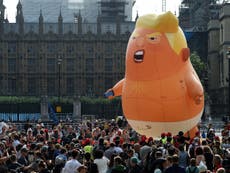
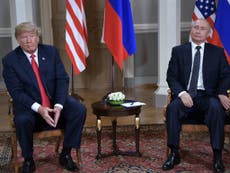
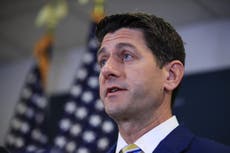
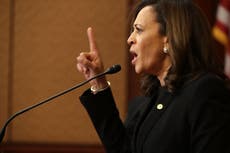
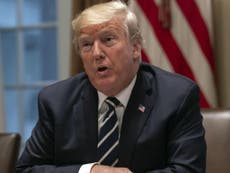
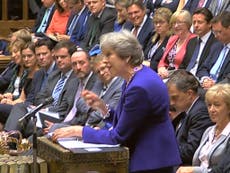
Join our commenting forum
Join thought-provoking conversations, follow other Independent readers and see their replies